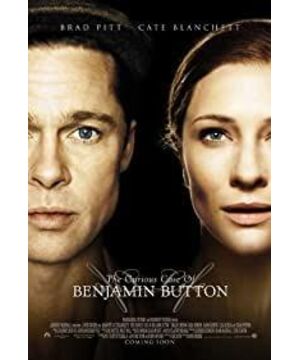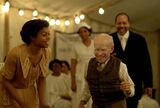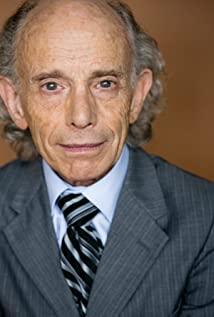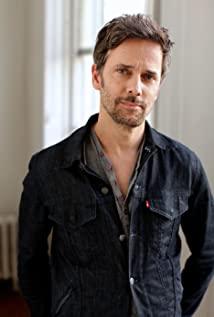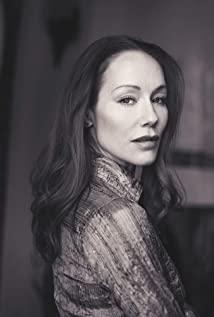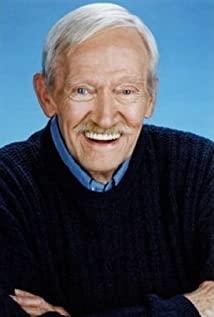The Curious Case of Benjamin Button (Chinese translation of "The Curious Case of Benjamin Button" or "The Curious Case of Benjamin Button") is a peculiar movie, not just because of its plot setting.
Many people have pointed out the similarities between this movie and "Forrest Gump". These similarities are so obvious to those who have watched these two movies that I don't think I need to list them all. come out. Whether it is the structure of the movie, the special effects processing of historical shots, the ups and downs of the protagonist's life, or even the love trajectory of the male and female protagonists, the shadow of "Forrest Gump" can be seen everywhere. But more important seems to be those differences. In fact, it is these differences that give this movie an abrupt sense of existence:
this is not a grand narrative movie.
This is not an ambitious movie that reflects a history of changes in a person's life.
This is not a movie about America.
The last point needs some clarification. This is not to say that this movie has no American taste—it is actually more "American" than any movie I have watched recently. The story takes place in Louisiana’s New Orleans area (different from Baltimore in the original book). This is deep south in a pure sense. Almost all the characters have a strong local accent (so much of the lines I can’t (Accurate understanding), there are plots involving deep American folk culture everywhere, and the protagonist has even participated in the US military's foreign operations. But, still, this is not a movie about the country (or nation/history/society...).
This is a movie about life itself.
In this sense, not only is it not an imitator of "Forrest Gump", but it has gone to its opposite. Audiences who expect to feel a bit of epic atmosphere in this movie will be disappointed because it avoids this from beginning to end. Although the protagonist’s experience is bizarre, there is nothing magnificent about it. To be precise, it was a little boring. Love stories can barely be used as the main line to promote the plot, but it is only because there is really no other main line to find.
But if an audience like me does not embrace any psychological presupposition to watch this movie—I don't even know how long it is at the beginning of the movie—he must have a completely different feeling. It was not until the end of the film that I was surprised to find that the film was nearly three hours long. From the beginning to the end, I didn't feel bored, didn't feel sleepy, or even thought of seeing the watch. For a movie where even the plot is sloppy, this is really unusual.
It is difficult to find a suitable word to describe this movie. You can say it's a bit like narrative prose, but it doesn't seem to be the case. For me, it's an unusual sigh of life. You are not caught by those shining key moments, but by the long and distant narrative itself. You will not particularly notice the performances of Brad Pitt and Cate Blanchett (although they both performed well), and you will not think that Benjamin Button’s experience of turning back in life looks so fantastic (although it does It is the basis for the whole movie to be built). You may even laugh out of the fancy fragmentary baggage that appears from time to time in the movie and don't think they disrupt the rhythm of the movie (though generally speaking, such small baggage that has nothing to do with the main line is a big taboo in the structure of the movie) . You may wonder, what role did Benjamin Button’s unique life setting play in this movie? Why does it look like a normal, cumbersome, trivial, and procrastinating outline of life, yet it attracts you to keep watching?
In fact, if you think about it carefully, you will understand that even if a person is born as an old man and dies as a baby, for most people except his relatives, there is nothing unusual about him. , Because everyone is just a passer-by in other people's lives, and during the time when the two lives meet, he is just an ordinary person at a certain age. If you don't share the long years with him like the heroine in the movie, then his life to you is just a feather on the mud, which can be cut and combined into any shape. This is one of the most essential mysteries of life and the key to the establishment of this movie. The fate of Benjamin Button is hidden behind the scenes throughout the movie, grabbing your attention and promoting your curiosity, so that the long narrative rhythm of the movie will not get out of control, but he has never jumped out to declare his special existence. What finally appears on the screen is not a person's unique life, but just the ordinary life of everyone.
So this created the unique charm of this movie. Of course, it can be blamed for its various flaws. After all, for a three-hour bold attempt, there are too many things that have failed to reach perfection. In my opinion, the weights before and after the movie seem to be a bit out of balance. But you still can’t help but appreciate the director’s outstanding efforts for creating such a unique film. Maybe not solemn and concise enough, but at least warm and long.
For me, the most memorable scene did not happen between the hero and heroine, but in the empty restaurant of the Russian hotel at midnight. When I saw the tea cups and chairs under the dim lights, I suddenly felt that I was watching a real scene—a lonely scene that was not dramatic at all, lacking focus, and contemplating. I was not moved by it, but at that moment, I suddenly felt that I was not just watching a movie.
View more about The Curious Case of Benjamin Button reviews


